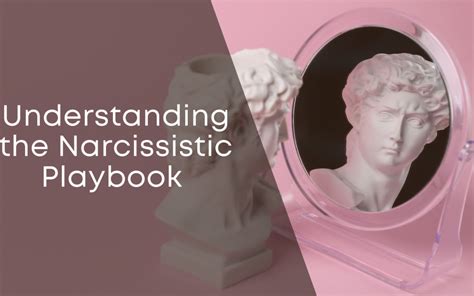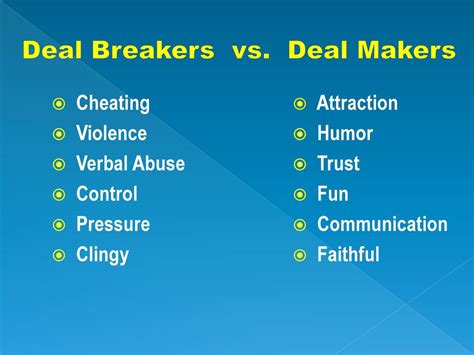
Narcissists employ a variety of manipulative tactics to commandeer attention and ensure they remain the focal point in any interaction, often leaving others feeling drained, invalidated, and questioning their own perceptions, according to experts. These behaviors, ranging from subtle one-upmanship to outright grandiosity, are rooted in a deep-seated need for validation and a lack of empathy.
Understanding these tactics is crucial for protecting oneself from emotional manipulation and maintaining healthy boundaries. “Narcissists are masters of manipulation,” explains Dr. Ramani Durvasula, a licensed clinical psychologist and expert on narcissistic personality disorder, in her various works. Recognizing these patterns is the first step in navigating relationships with individuals exhibiting narcissistic traits.
The Narcissist’s Playbook: 13 Attention-Seeking Tactics
The article outlines 13 common behaviors that narcissists use to hijack the spotlight:
-
One-Upping: Narcissists frequently diminish others’ experiences by sharing similar stories, but escalating them to appear more impressive. If someone shares a story about a challenging hike, a narcissist might respond with a tale of a far more dangerous climb they undertook, minimizing the original speaker’s accomplishment. This behavior is driven by a need to be seen as superior. As the original article notes, “Suddenly, it’s no longer about you, it’s about them and how much more exciting or challenging their life is.”
-
Interrupting: Constant interruptions are a hallmark of narcissistic communication. They demonstrate a lack of respect for others’ opinions and a belief that their own thoughts are more important. This can manifest as cutting others off mid-sentence, changing the subject abruptly, or dominating conversations. The article highlights how this behavior “shows a lack of respect and the belief that they should be the center of attention.”
-
Grandiosity: Exaggerated claims of talent, success, and importance are common. Narcissists often inflate their accomplishments and downplay their shortcomings. This behavior stems from an inflated sense of self and a need to impress others. This can include boasting about achievements, connections, or possessions, often presented in a way that feels self-aggrandizing. The article mentions, “They might exaggerate their achievements or talents to appear more impressive.”
-
Attention-Grabbing Physicality: Narcissists may use physical appearance, such as flamboyant clothing or excessive grooming, to draw attention to themselves. They may also engage in attention-seeking behaviors, such as arriving late to events or making dramatic entrances. This is a calculated effort to ensure they are noticed and admired. The article specifies this could involve “dressing provocatively or acting out in public.”
-
Playing the Victim: Narcissists often portray themselves as victims to garner sympathy and attention. They may exaggerate past traumas or hardships to elicit emotional responses from others. This manipulation tactic allows them to control the narrative and avoid taking responsibility for their actions. This creates a dynamic where others feel compelled to care for them, reinforcing their sense of importance. As cited in the article, they “might exaggerate or even fabricate stories to get sympathy and attention.”
-
Gaslighting: This manipulative tactic involves distorting reality to make others question their sanity. Narcissists may deny events that occurred, contradict themselves, or twist words to confuse and disorient their victims. This erodes trust and makes it difficult for individuals to assert their own perspectives. Gaslighting is a particularly insidious form of abuse that can have long-lasting psychological effects. The article defines it as “making you question your sanity.”
-
Triangulation: Involving a third party in a conflict is a common narcissistic tactic. Narcissists may use gossip, rumors, or outright lies to create division and manipulate others against each other. This allows them to maintain control and avoid direct confrontation. This tactic often involves comparing individuals to others, fostering jealousy and insecurity. The article explains triangulation as “involving a third person in a two-person relationship, often to create drama or manipulate the situation.”
-
Name-Dropping: Mentioning prominent or influential people they know is a way for narcissists to elevate their own status. This tactic is designed to impress others and create the illusion of importance. Name-dropping can also be used to intimidate or silence critics. The article specifically mentions this behavior as designed “to impress others and make themselves seem more important.”
-
Needing to Be the Center of Attention: Narcissists crave constant validation and admiration. They may become agitated or upset if they are not the center of attention. This need for attention can manifest in various ways, from dominating conversations to seeking out dramatic situations. This inherent need for external validation drives many of their attention-seeking behaviors. According to the source article, “They need to be the star of the show.”
-
Emotional Blackmail: Using guilt, threats, or intimidation to control others’ behavior is a form of emotional blackmail. Narcissists may threaten to withdraw affection, reveal secrets, or sabotage relationships if their demands are not met. This tactic exploits others’ vulnerabilities and creates a climate of fear and dependence. It’s described in the article as “using guilt, threats, or intimidation to get what they want.”
-
Constant Need for Praise: Beyond simply enjoying compliments, narcissists require constant reassurance and validation from others. This need for praise is insatiable and often unrealistic. They may fish for compliments or become resentful if they feel they are not receiving enough attention. The article notes that this need is “insatiable, and they always need to be told how great they are.”
-
Controlling Conversations: Narcissists often steer conversations to topics that interest them or allow them to showcase their knowledge or accomplishments. They may dismiss or ignore others’ contributions and refuse to engage in topics that do not benefit them. This behavior demonstrates a lack of empathy and a disregard for others’ interests. The article succinctly states they are “constantly steering the conversation back to themselves.”
-
Disregarding Boundaries: Narcissists often disregard others’ boundaries, both physical and emotional. They may invade personal space, ask intrusive questions, or share inappropriate information. This disrespect for boundaries stems from a sense of entitlement and a belief that their needs are more important than others’. The article mentions that they “don’t respect your boundaries and will overstep them without hesitation.”
Understanding Narcissistic Personality Disorder (NPD)
While everyone may exhibit some of these behaviors occasionally, narcissism becomes a disorder when these traits are pervasive, inflexible, and cause significant impairment in social, occupational, or other important areas of functioning. Narcissistic Personality Disorder (NPD) is a mental health condition characterized by a grandiose sense of self-importance, a need for excessive admiration, and a lack of empathy.
The Diagnostic and Statistical Manual of Mental Disorders (DSM-5) outlines specific criteria for diagnosing NPD, including:
- A grandiose sense of self-importance (e.g., exaggerates achievements and talents, expects to be recognized as superior without commensurate achievements).
- Preoccupation with fantasies of unlimited success, power, brilliance, beauty, or ideal love.
- Belief that they are “special” and unique and can only be understood by, or should associate with, other special or high-status people (or institutions).
- A need for excessive admiration.
- A sense of entitlement (i.e., unreasonable expectations of especially favorable treatment or automatic compliance with his or her expectations).
- Exploitative interpersonal relationships (i.e., takes advantage of others to achieve his or her own ends).
- Lack of empathy: is unwilling to recognize or identify with the feelings and needs of others.
- Envy of others or a belief that others are envious of him or her.
- Demonstration of arrogant, haughty behaviors or attitudes.
It’s crucial to remember that only a qualified mental health professional can diagnose NPD. Labeling someone as a narcissist without a proper evaluation can be harmful and inaccurate.
The Impact of Narcissistic Behavior on Others
Interacting with a narcissist can be emotionally draining and damaging. Their manipulative tactics can lead to feelings of:
- Invalidation: Narcissists often dismiss or minimize others’ feelings and experiences, leaving them feeling unheard and unimportant.
- Confusion: Gaslighting can lead to confusion and self-doubt, making it difficult to trust one’s own perceptions.
- Anxiety: Walking on eggshells around a narcissist can create chronic anxiety and fear of triggering their anger or disapproval.
- Depression: The constant criticism and manipulation can erode self-esteem and lead to feelings of depression and hopelessness.
- Isolation: Narcissists may isolate their victims from friends and family to maintain control.
Strategies for Coping with Narcissistic Behavior
Dealing with a narcissist requires setting firm boundaries and protecting oneself from their manipulative tactics. Here are some strategies:
- Set Clear Boundaries: Define your limits and communicate them assertively. Be prepared to enforce these boundaries, even if it means facing resistance or anger.
- Limit Contact: If possible, limit your contact with the narcissist. This may involve reducing communication, avoiding social gatherings, or even ending the relationship altogether.
- Don’t Engage in Arguments: Narcissists thrive on conflict. Avoid getting drawn into arguments or trying to reason with them.
- Focus on Your Own Needs: Prioritize your own well-being and self-care. Engage in activities that bring you joy and help you relax.
- Seek Support: Talk to a therapist, counselor, or trusted friend or family member. They can provide support and guidance in navigating the relationship.
- Detach Emotionally: Practice detaching emotionally from the narcissist’s behavior. Recognize that their actions are a reflection of their own issues, not a reflection of your worth.
- Document Everything: If you are in a legal dispute or custody battle with a narcissist, document all interactions, including emails, texts, and phone calls. This can be helpful in court.
- Remember It’s Not Your Fault: Narcissistic behavior is a result of deep-seated psychological issues. It’s not your fault that the narcissist is behaving the way they are.
- Educate Yourself: Learning more about narcissism can help you understand the narcissist’s behavior and develop effective coping strategies.
- Consider Therapy: Therapy can help you process the emotional impact of the relationship and develop healthier coping mechanisms.
The Role of Social Media
Social media can exacerbate narcissistic tendencies. The constant availability of validation through likes, comments, and shares can fuel a narcissist’s need for attention. They may use social media to curate a perfect image of themselves, exaggerate their accomplishments, and seek constant reassurance from others.
Social media also provides a platform for narcissistic abuse. They may use it to stalk, harass, or defame their victims. Cyberbullying and online shaming are common tactics used by narcissists to control and manipulate others.
Narcissism in Different Contexts
Narcissistic traits can manifest in various settings, including:
- Romantic Relationships: Narcissistic partners often exhibit controlling, manipulative, and emotionally abusive behaviors. They may be charming and attentive at first, but their true colors eventually emerge.
- Family Dynamics: Narcissistic parents can be emotionally neglectful, critical, and controlling. They may prioritize their own needs over their children’s needs and create a toxic family environment.
- Workplace Environments: Narcissistic bosses can be demanding, arrogant, and exploitative. They may take credit for others’ work, micromanage employees, and create a hostile work environment.
- Friendships: Narcissistic friends can be unreliable, self-centered, and emotionally draining. They may use their friends for their own benefit and lack genuine empathy.
The Importance of Empathy
Empathy is the ability to understand and share the feelings of others. It is a crucial component of healthy relationships and social functioning. Narcissists lack empathy, which is why they are unable to connect with others on a deep emotional level.
Developing empathy is essential for building healthy relationships and creating a more compassionate society. This involves actively listening to others, trying to understand their perspectives, and responding with kindness and understanding.
Conclusion
Recognizing the tactics narcissists use to hijack the spotlight is essential for protecting yourself from emotional manipulation and maintaining healthy relationships. By understanding these behaviors, setting firm boundaries, and prioritizing your own well-being, you can navigate these challenging interactions and safeguard your mental health. While professional help is often needed for those diagnosed with NPD, those affected by narcissistic behavior can also benefit from therapeutic interventions to help navigate and heal from their experiences.
Frequently Asked Questions (FAQ)
-
What is Narcissistic Personality Disorder (NPD)?
NPD is a mental health condition characterized by a grandiose sense of self-importance, a need for excessive admiration, and a lack of empathy. Individuals with NPD often exhibit arrogant behavior, exploit others, and have difficulty maintaining healthy relationships. Only a qualified mental health professional can diagnose NPD based on specific criteria outlined in the DSM-5.
-
Are all people who exhibit some narcissistic traits diagnosed with NPD?
No. Everyone may exhibit some narcissistic traits occasionally. A diagnosis of NPD requires these traits to be pervasive, inflexible, and cause significant impairment in social, occupational, or other important areas of functioning. Exhibiting a few narcissistic traits does not automatically qualify someone for a diagnosis. It’s the consistency, intensity, and impact of these traits that determine whether someone meets the criteria for NPD.
-
How can I tell if someone is gaslighting me?
Gaslighting involves distorting reality to make you question your sanity. Signs include: the person denying events that occurred, contradicting themselves, twisting your words, and making you feel confused and doubt your memory or perceptions. If you consistently feel disoriented, second-guess yourself, or feel like you’re “going crazy” around someone, they may be gaslighting you. Keeping a journal or discussing your experiences with a trusted friend or therapist can help you validate your perceptions and identify gaslighting behavior.
-
What are some effective strategies for setting boundaries with a narcissist?
Setting boundaries with a narcissist requires assertiveness and consistency. Start by clearly defining your limits and communicating them directly. Be prepared to enforce these boundaries, even if it means facing resistance or anger. Use “I” statements to express your needs and feelings, such as “I need some space right now” or “I’m not comfortable discussing that topic.” Avoid getting drawn into arguments or trying to reason with them, as they often thrive on conflict. It’s essential to prioritize your own well-being and self-care, and to seek support from a therapist, counselor, or trusted friend or family member.
-
What is the long-term impact of being in a relationship with a narcissist?
Being in a relationship with a narcissist can have a significant long-term impact on your mental and emotional health. It can lead to feelings of invalidation, confusion, anxiety, depression, isolation, and low self-esteem. You may experience difficulty trusting others, setting healthy boundaries, and maintaining healthy relationships. It’s crucial to seek therapy or counseling to process the emotional impact of the relationship and develop healthier coping mechanisms. Therapy can help you rebuild your self-esteem, learn to recognize and avoid narcissistic behavior in the future, and develop healthier relationship patterns.









